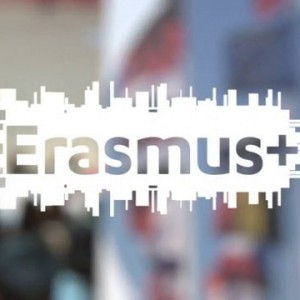The European Commission published its 2020 call for proposals for the Erasmus+ programme.
2020 is the last year of the current European Union programme for mobility and cooperation in education, training, youth and sport. The expected budget of over €3 billion, an increase of 12% compared to 2019, will provide even more opportunities for young Europeans to study, train or gain professional experience abroad. As part of the 2020 call for proposals, the Commission will launch a second pilot on European Universities. Moreover, the EU aims to create 35,000 opportunities for African students and staff to participate in the programme as part of the Africa-Europe Alliance for Sustainable Investment and Jobs.
European Universities
The first 17 European Universities were selected in June 2019. They are in the process of starting their activities. The second call for proposals launched today builds on this first test phase. The initiative will be the focus of a European Commission event on 7 November 2019, where all the European Universities selected so far will for the first time come together to exchange information and discuss the way forward with students, rectors and ministries responsible for higher education. Other universities will also be represented for discussions on the future of higher education in Europe.
Education, vocational training and adult learning
This will be the third year of the School Exchange Partnerships – an Erasmus+ action offering opportunities for European schools to exchange pupils and teachers. Over the past two years, more than 15,000 schools have participated. In 2020, another 9,000 schools will have the opportunity to take part.
In vocational education and training, investment focuses on ErasmusPro – opportunities for learners and apprentices to spend between three months and a year abroad, developing their professional and linguistic competences. Since its launch in 2018, ErasmusPro has succeeded in increasing the interest for long-term placements in vocational education and training, and has supported more than 12,000 learners per year. Support will also help set up “pilot” transnational vocational education and training Centres of Excellence, integrated in local and regional development strategies. The Centres will work closely with other education and training sectors, the scientific community and business to develop high quality curricula focused on sectoral skills.
In adult learning, financial support will help set up or strengthen regional or national networks of adult learning providers, so that they can offer an increased number of quality projects for the next Erasmus programme.
Additional opportunities in the Africa-Europe Alliance
As in 2019, this year’s call will offer additional opportunities to support exchanges for African students and staff to participate in Erasmus+. While 26,247 exchanges have already taken place, the aim is to support 35,000 people by 2020, as announced in the Africa-Europe Alliance for Sustainable Investment and Jobs. Universities can also apply for capacity building in higher education projects, which contribute directly to the recommendations made at the recent Africa-Europe high-level Conference on Higher Education collaboration.
Background
Erasmus+ is the EU’s programme for mobility and transnational cooperation in the areas of education, training, youth and sport for the period 2014-2020. The current programme as well as its successor, coming into effect in 2021, have a key role in making the European Education Area a reality by 2025. Erasmus+ aims to facilitate access to the programme for participants from all backgrounds, with a particular focus on reaching out to people with social, economic, physical or geographic disadvantages.
In May 2018, the Commission has proposed to double the Erasmus budget to €30 billion for 2021-2027, making it possible for up to 12 million people to have an experience abroad.
For More Information







Leave a Reply